Ask the Experts: Mind Against
The Fognini brothers answer your questions on their inspirations, background, and production techniques.
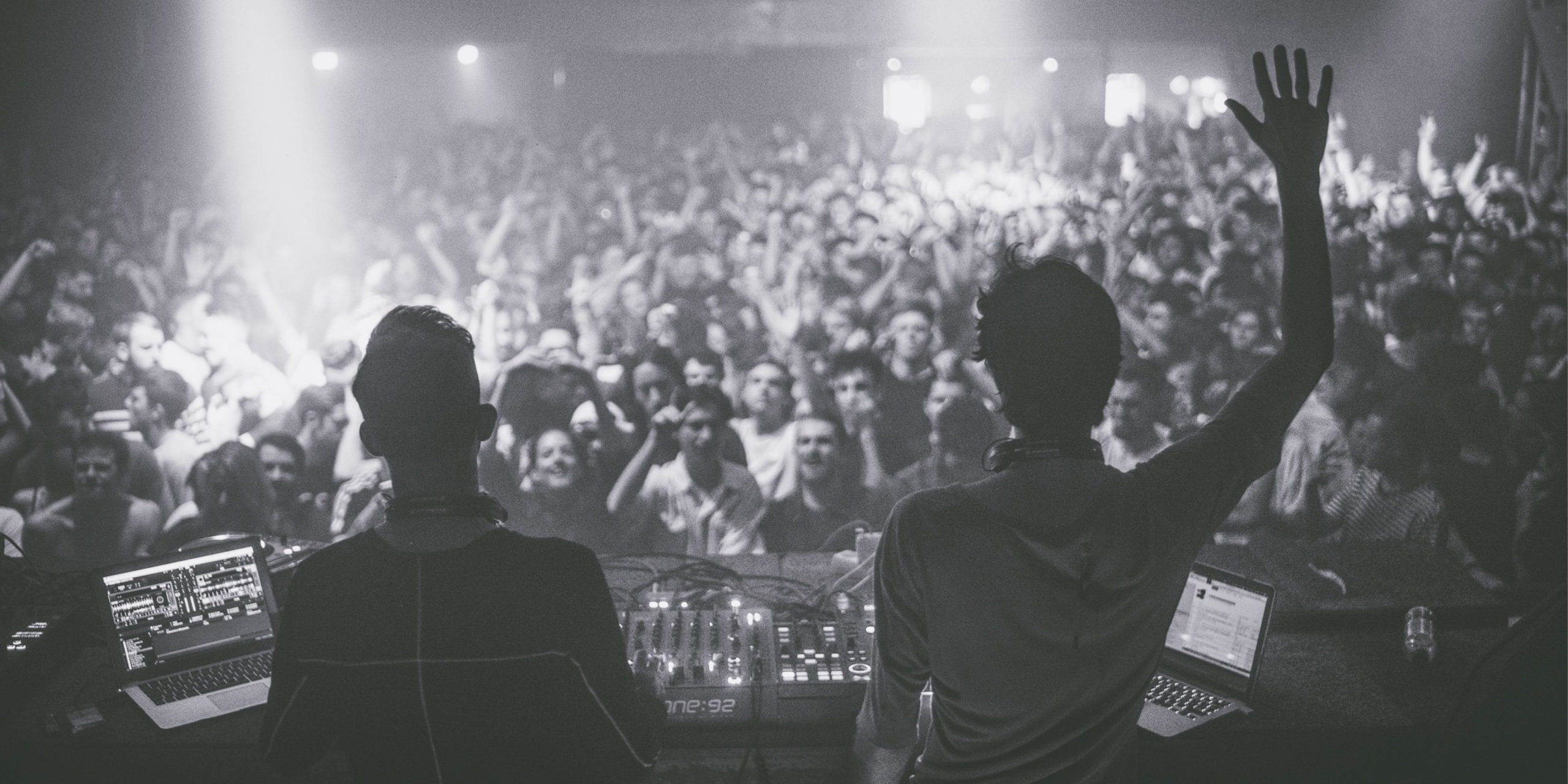
Ask the Experts: Mind Against
The Fognini brothers answer your questions on their inspirations, background, and production techniques.
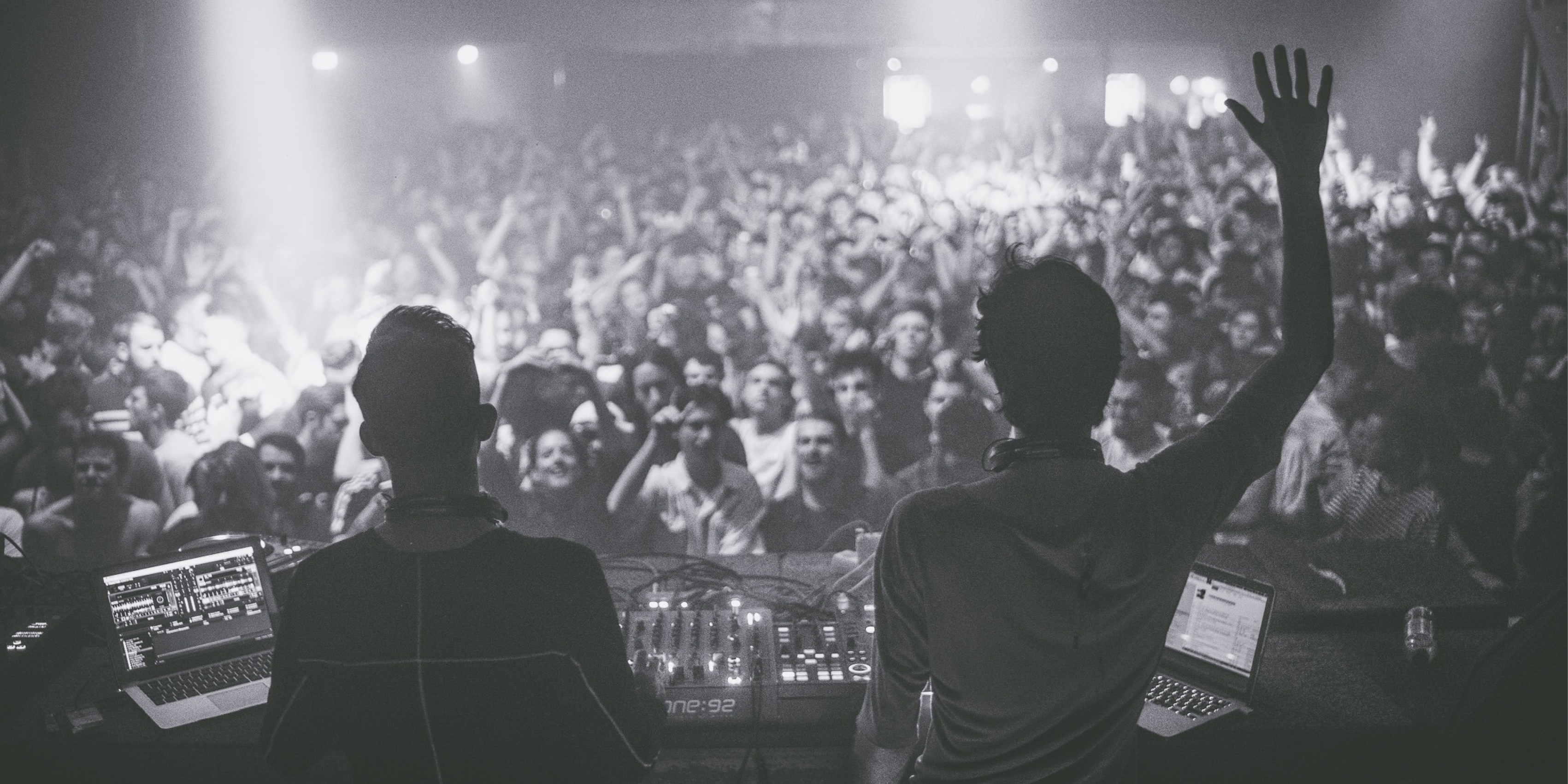
Mind Against is the DJ and production project of Alessandro and Federico Fognini—two brothers born and raised in Milan, Italy. Having moved to Berlin, via London, in 2011—the goal, they explain, being to pursue careers in music—they debuted in September 2013 with their Atlant three-tracker on Life and Death—the prestigious imprint with Manfredi Romano (a.k.a DJ Tennis), Thugfucker‘s Greg Oreck, and Tale Of Us‘ Matteo Milleri at the helm.
And then it all developed very quickly. Two more Life and Death releases followed soon thereafter—namely Avalon and Strange Days—which subsequently launched the pair into the spotlight, creating a global presence and culminating in a series of DJ bookings all across the European continent and beyond. In addition to this, the brothers soon became central figures in the Life and Death label, assisting with the A&R and label management while performing at many of the label showcases. In 2015, they added three more EPs to the imprint’s impressive discography.
Things today, however, are slightly different. Having relinquished their role in Life and Death, much of their time is invested in Afterlife, the party-band and imprint run by Matteo Milleri and Carmine Conte (a.k.a. Tale Of Us) for which the Fognini Brothers co-run the A&R. Launched in the summer of 2016, the brand went on to host a series of parties and released two EPs towards the back end of the year, while Solaris, the imprint’s third outing that the Fognini duo made in collaboration with Aether, will land on February 10—though the EP’s title track appeared on Mind Against’s September Essential Mix for BBC Radio 1.
Overlooking, for now, the intrigue around the duo as artists, there has long been much interest in their sound—a deeply melodic and emotionally rich form of techno for which the Fognini brothers have become the world’s finest ambassadors. What are the tools and techniques behind these intricate atmospheres present in all their releases? How do they create such dramatic late night club sets? Just where do they get their music from?
In order to answer just some of these questions, we thought it was time to ask the brothers to contribute to our Ask the Experts series—the results of which lie below.
Mind Against can be found playing at this year’s 375th special edition of Igloofest on Friday, January 20. More information and tickets can be found here.
Do you have any training in music theory or playing any instrument?
We are self-taught, but we did both have some piano lessons during middle school. Everything we do is out of instinct. Sometimes a lack of rules is helpful because the important thing is the output. However, at a certain point, it is important to know the rules so you can know when to break them—and also know how to break them.
“Be patient until you have something really game changing or at least good enough to shape an original identity for yourself.”
What are your hints to the new producers for catching the attention of big artists like you?
It’s important that you look to do something new and original rather than replicate what is already out there. Be patient until you have something really game changing or at least good enough to shape an original identity for yourself. We receive lots of demos that sound forced because the artist is trying to replicate something that is already out there—something that has already been heard. Try to focus on fresh ideas rather than just finishing tracks just to say that you have finished a track. We produced hundreds of tracks before we felt comfortable sending anything out. Even now, only a small fraction of our productions are ever released.
It is beautiful that two brothers decide to make art, live, and travel the world together. To the outside world, it seems that you have to do everything together because neither of you has or has had a solo project. How much time do you spend together in your daily life? Could one or both of you guys imagine doing to do a solo project at some point?
We used to spend a lot more time together because we were also living together in Berlin. We just moved into different apartments six months ago, so we only really travel and make music together—which is still a lot of time, actually. We don’t feel the need to work on solo projects, though it is not something we will ever exclude. Maybe it will happen one day.
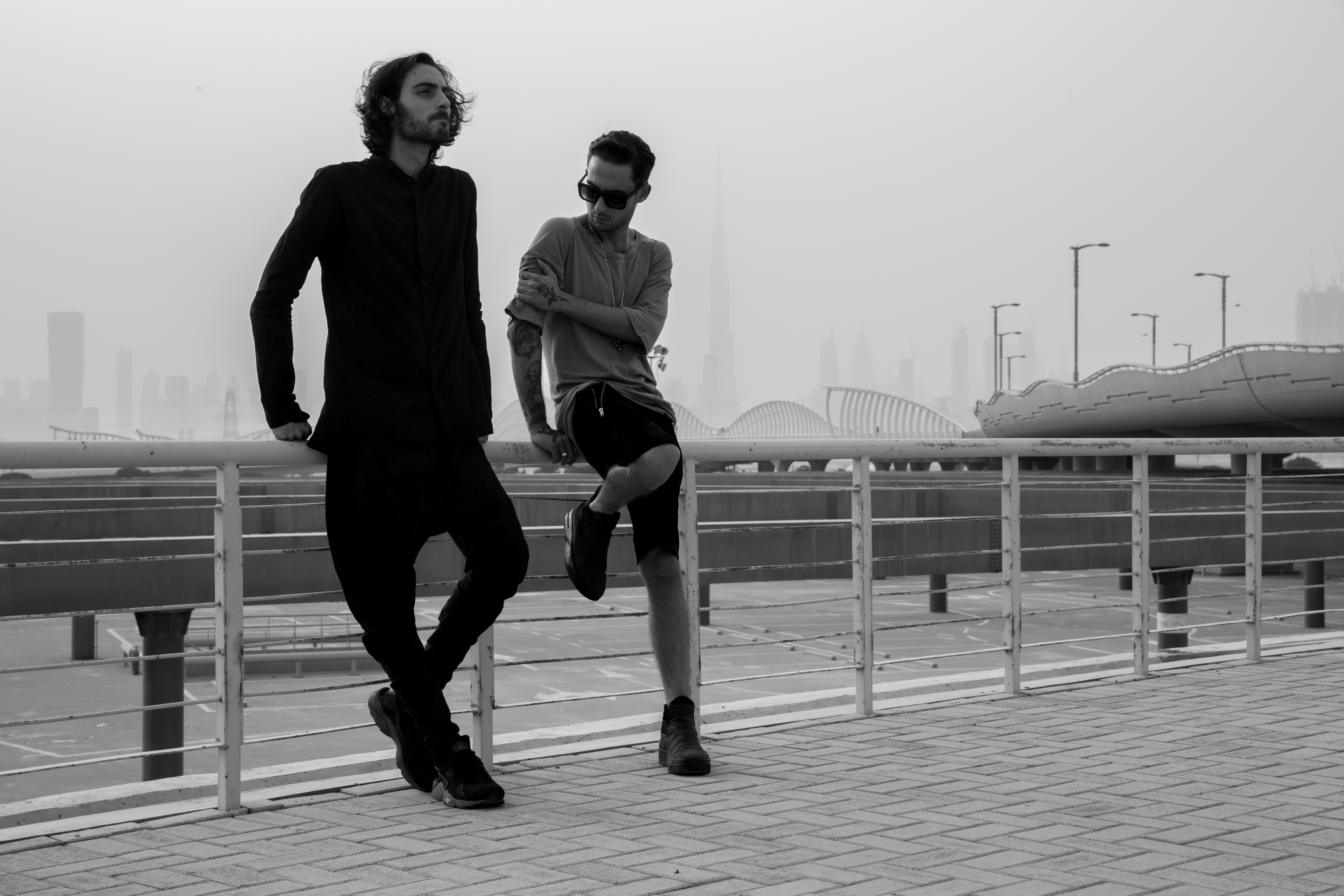
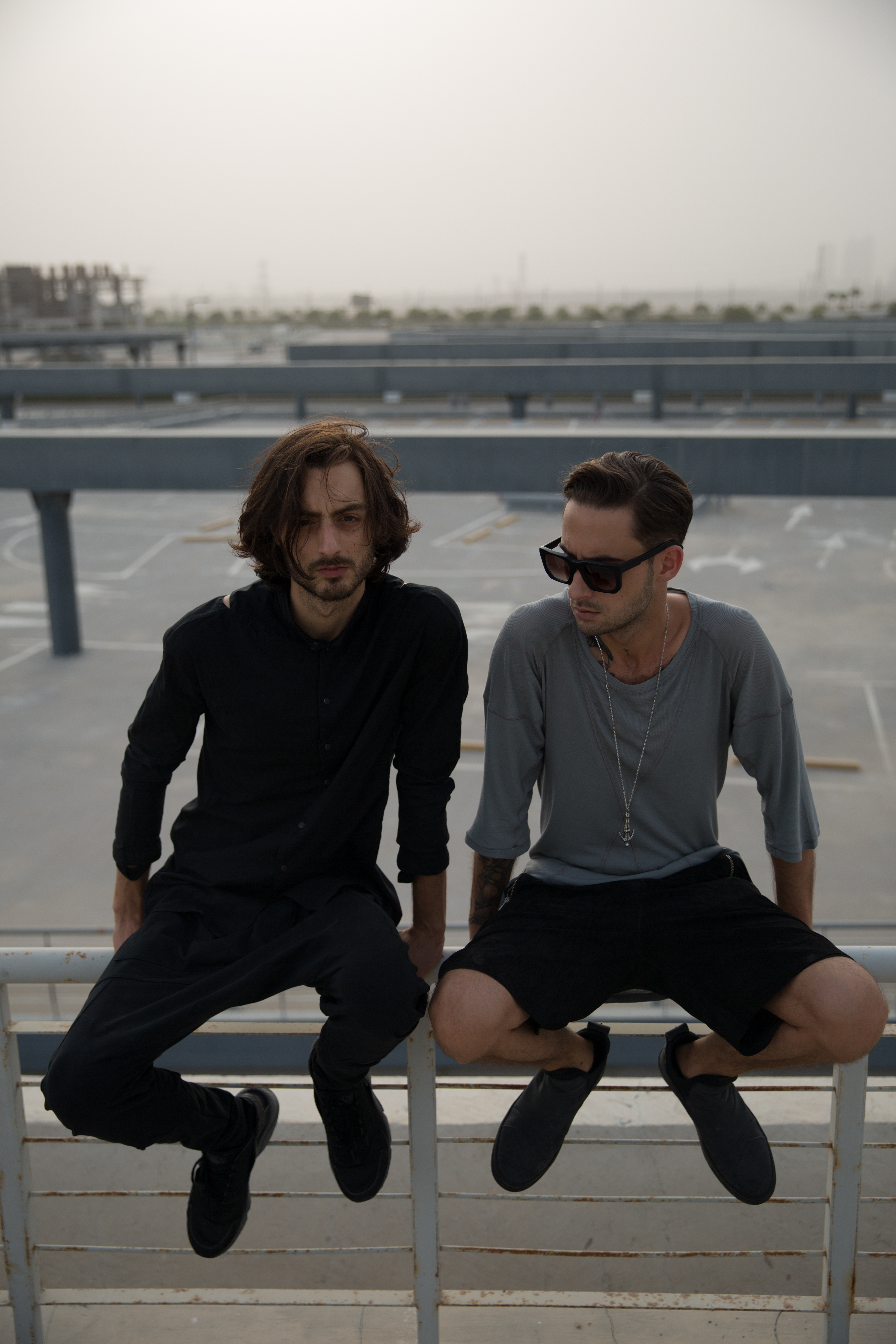
I’ve read in an interview that you guys got to know Matteo from Tale of Us and used to produce with him before you became successful. How did you get in touch with him, and has that connection been useful for your artistic path? Did you get inspired by each other? Do you still share ideas and creativity with Tale of Us?
Yeah, Alex met Matteo in 2006, a long time before we all began as musicians. We were going to clubs but we had no real interest in producing music or DJing; we were just friends before everything started.
For sure it has been good to be part of Life and Death in the beginning.
Maybe we would have come out anyway, somehow, without their support, but it would have just happened in a different way. Now we are following different paths, but we are still in close contact as we share ideas and creativity. We continue to inspire each other, and we still spend time in the studio together.
When did you realize you wanted to start producing and taking music seriously. Was it difficult?
We were playing vinyl and shared an interest in electronic music for a long time before we actually started to feel the need to produce our own stuff. We began working on production in 2008, but we were not earning any money from it—so we were doing random day jobs to earn the money to buy the first synths and eventually vinyl. Fortunately, our family has also always supported us, too. In January 2012 we then decided to leave everything and do music full time–just a few months after our first EP, Atlant” was released on Life and Death.
Not mentioning the technical side for a second, for sure it hasn’t been easy to leave behind friends, family, and eventually love to follow this dream we share.
I feel that the strong and complex lead sounds are a key element of your sound—speaking of “Gravity” or more recently “Solaris” from your Essential Mix. Do you guys have a favorite delay/reverb unit to process your lead sounds through?
We normally only use the built-in delay and reverb of Logic—but for some of our more recent tracks, we’ve started to process the audio signal through the Elektron Analog Four’s effects. We used this technique for “Gravity” and “Solaris,” for example. For these tracks we sent out a pattern from the Analog Four Sequencer to the MS20; and then the audio signal from the MS20 was rerouted into the Analog 4, reprocessing everything with its own filters, effects, envelopes, etc.
How did you create the lead synth in “Strange Days,” and how you got it to blend and sit in the mix so well?
That’s actually made out of a customized preset we programmed on a Clavia Nord Lead 2.
But I don’t think it’s hard work to make a synth line fit in the mix when you focus on keeping everything in the right place while building the track. A particularly good part of “Strange Days” is that, even though it sounds like a lot is going on during the entire track, it actually has only a few key elements—but each one of them is covering a certain range of frequencies while avoiding a clash with the rest. Once we had the main loop done, it came naturally to fit the synth line on top, sounding as it has always been there.
To be honest, the main synth was way more complicated and was actually born as a different track itself. The original version was a long take of four-plus minutes, and from this segment, we chopped the main riff, which then made “Strange Days” as you know it today.
I really love the atmospheres in your tracks—the kind of drones and pads that sit quietly in the back of the mix. They are key to translating a certain feeling when listening. What is your way of approaching and constructing these textures? Do you have any favorite synthesizers for this?
We start most of our tracks with these atmospheres. But we don’t really have a set process for building them; it can just be a wet reverb of a synth hook previously recorded and not used in the track, that we maybe loop in the background to make an ambient texture—but it can really be anything. However, we can say that one of the pieces of gear that we like the most for this is the Juno60. It is perfect for pads because it gives this warm vintage atmosphere.
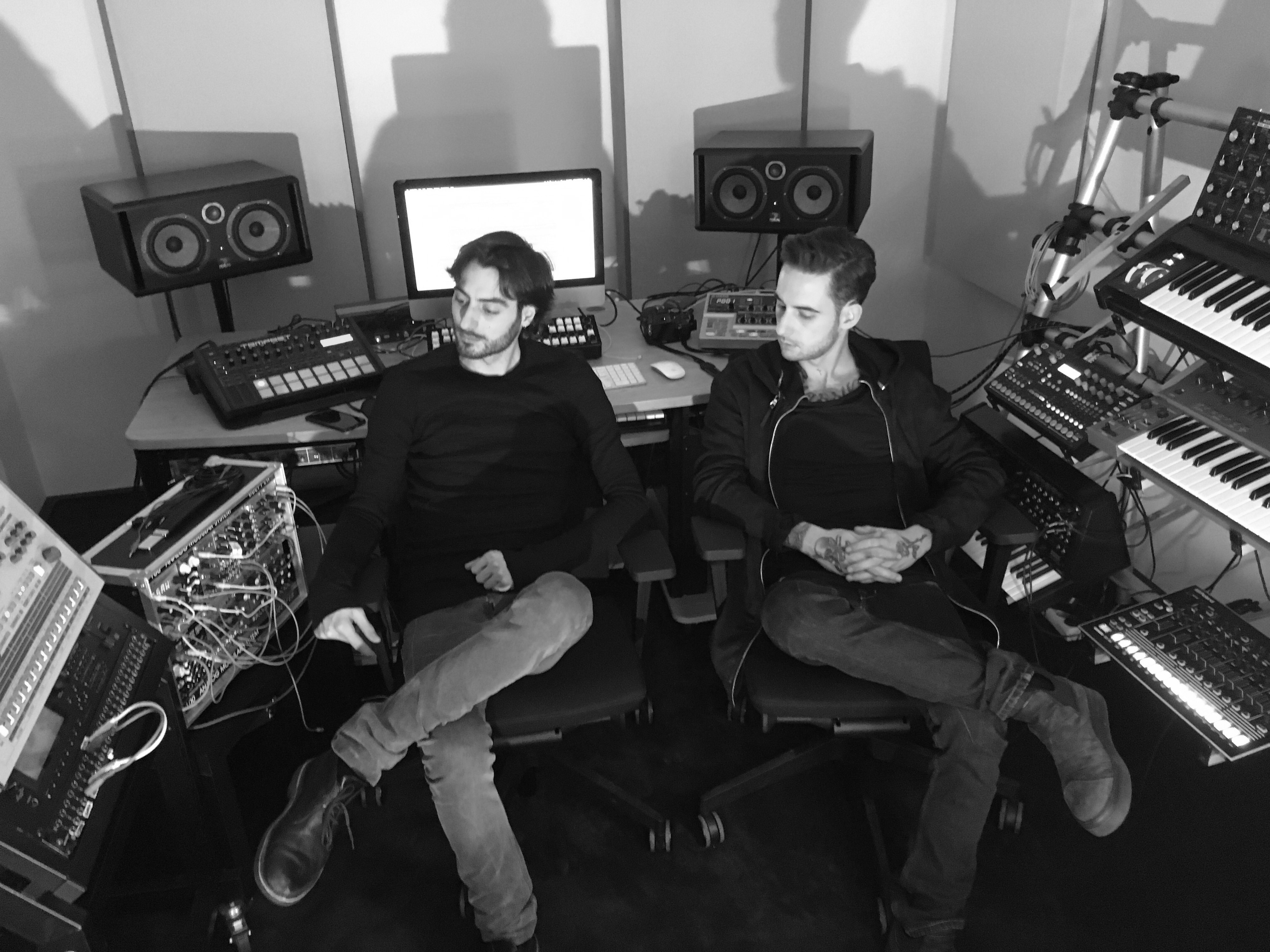
I am really interested in your studio workflow. Firstly, do you split the responsibilities—so, does one of you more focus on drumming and sequencing and the other one works harder on melodies and synths? And do you have a certain routine for working on an idea or a track?
We actually work a lot in the studio alone, especially more recently because we’ve been traveling a lot and have also moved studio. But the output from both of us is similar; we can both work on drums or anything to make it sound like a Mind Against track. The one time we always work together in the studio is when we have to finalize a song.
“We never rely on the mastering for quality improvement.”
How much importance do you give to the mix-down and how much to the master? Do you do most of the work during the mix?
We naturally build the right mix as we are putting the ideas together. We are not leaving the mix to the end because we can’t go on to the next step if we don’t have the previous step sounding as we want. But it’s not something we spend too much time on. After almost 10 years of producing it is something that we do naturally.
When it comes to mastering, we used to play lots of our tracks out that weren’t yet mastered—it was just our rough mix with a limiter on top. We actually still do it nowadays. And then when we send out tracks to be mastered they’re already sounding nice. Mastering is just a standard process that we must do—a procedure that we do before the release for the vinyl cut, for example. We never rely on the mastering for quality improvement.
How do you make your drums? The 909 seems prominent in your productions; however, on tracks like “Vertere,” you seem to make use of other samples. Are you browsing sample folders inside the computer or is this all coming from outboard gear?
We felt at some point that the 909 was in a certain way too limited for us so we left behind in the setup–even though it is still there as part of the studio. We like to layer our drum lines with many different machines, like the Dave Smith Tempest, for example, or the Elektron Monomachine—but we also use samples from everywhere, including libraries. We believe that it doesn’t matter where you get your sounds from, as long as you focus on the result you want to obtain.
Your melody seems to never be the same in notes, velocities, filter cut-off etc. How do you manage to get these constant changes? Do you program them in your DAW ? Or do you record yourself in audio and then choose and arrange the best parts?
We actually like to do long live takes and then we decide on the best parts. If you listen to our tracks, you’ll see that there is always one main riff that repeats—maybe a long riff of 32+ bars. We loop that and then we record long takes while we continuously modulate filters, envelopes, etc. This is what gives “the constant change” feeling that I believe you’re talking about.
As we said, we have been using a lot of external sequencers lately—the Cirklon, for example, is very advanced and supports up to 64-bar sequences, and also allows you to do pretty much any kind of parameter customization. Also, one thing we used to do in the beginning was to trigger the arpeggiator of the Korg Monopoly—which originally did not support MIDI—with the rimshot signal coming out of the TR-909. So we were playing different chords on the Monopoly to set the notes for the Arpeggio. The Monopoly was then playing these notes one after the other on each position of the pattern on which the rimshot was hitting from the 909 (Triggering). This way we were able to have very long takes, with so many possible combinations on the scale, giving to the melody an idea of constant changing and evolving.
But it is important to note that our processes are always changing. Some producers just jam around and that’s their way, but our process tends to change a lot. We know what our goal is but we never have a set route to arriving there—we know what we want but we always experiment. However, the end result is normally something similar to the idea we had at the start. We recently started to use modular synths so I think these processes are going to change once again and move onto the next level.
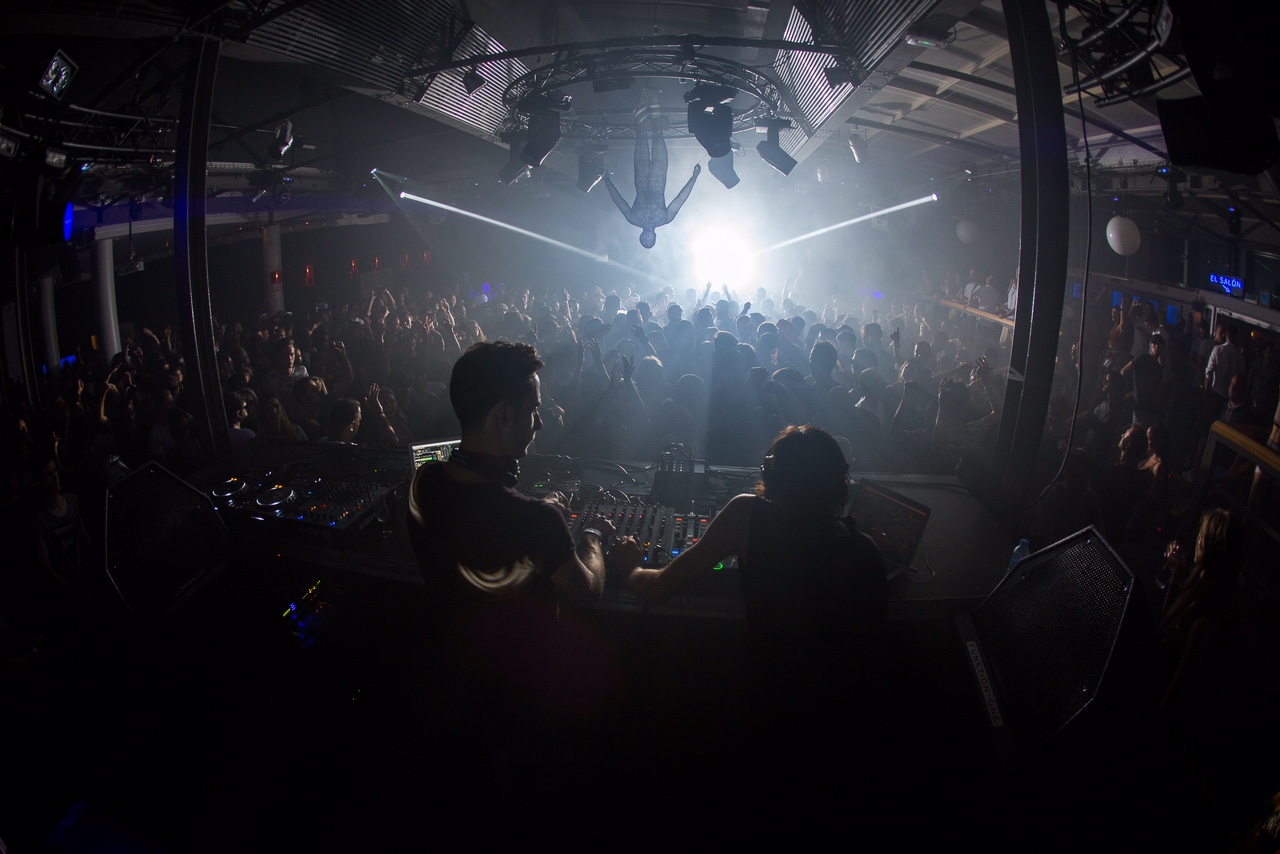
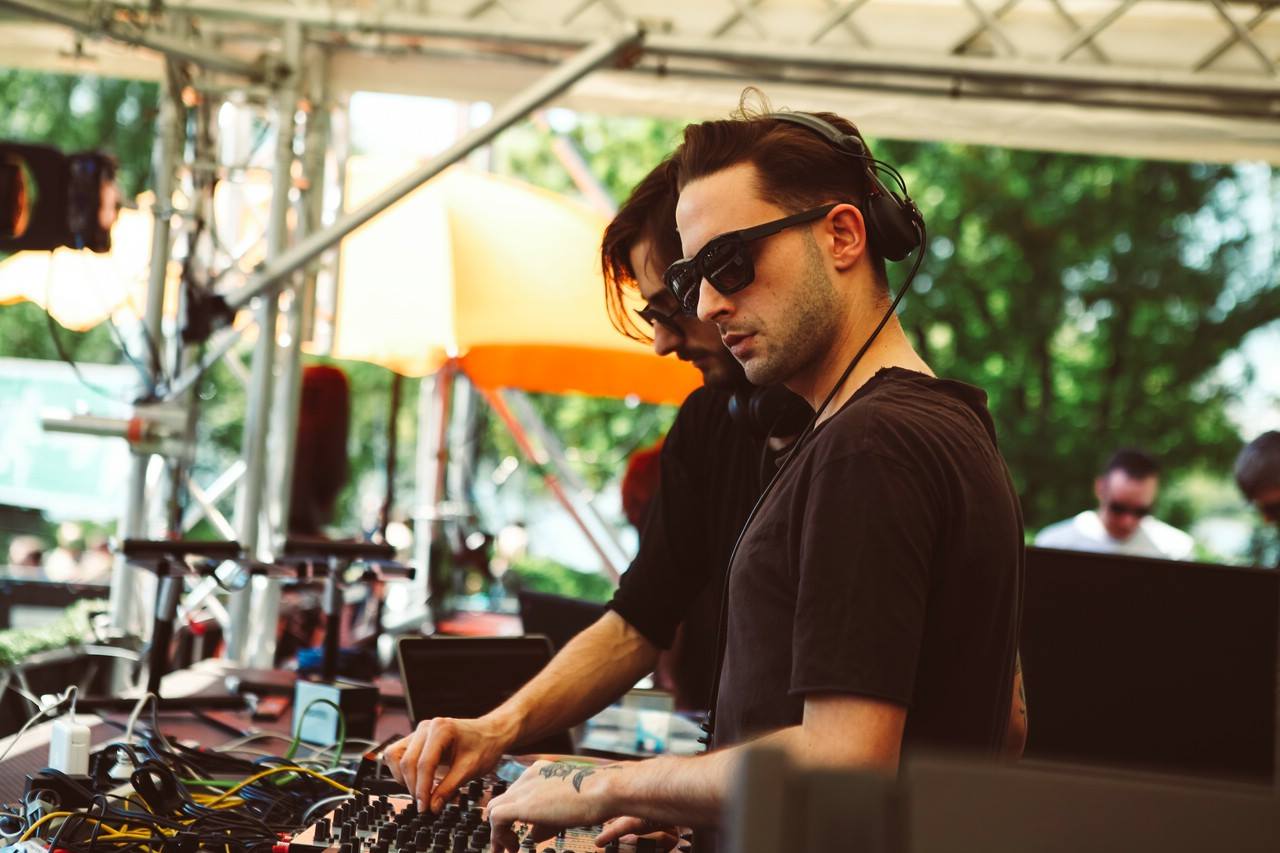
What are your thoughts with regards to DJing off your laptop software versus DJing with CDJ’s?
The importance of performance is the outcome. It doesn’t matter how you reach it. Some sets on Ableton are much better than sets with big analog setups, for example.
We started in 2006 by collecting and playing vinyl. Then, out of comfort and convenience—because we started traveling more—we switched to Traktor, so we used one laptop and two vinyl records. Now, at this point, we use two laptops with Traktor because this gives us each two channels and therefore supports our performance by allowing us to blend four tracks together using loops. Our sets are not about beat matching anymore, even if it’s something we still do; and we like to create new music in the moment, something that happens only there at that given time. So the Mind Against set would not be the same if we still used vinyl. We are not saying one is better than the other, it’s just different.
How do you find new tracks—research? Or do you receive the promos directly? What platform do you use to search new, unknown tracks?
We do a lot of music research. This is just the part of being a DJ, it’s a part of the job. We are finding a lot of interesting stuff on Bandcamp lately, for example. We also still collect vinyl, so sometimes we find tracks on vinyl and we contact the label to get the digital. And yes, we do have a separate promo email set up linked to certain labels that we like and trust, in order to filter and avoid the spam otherwise, it would not be possible to listen to all the promos we receive. Of course, we still also play a lot of our unreleased productions or tools.
How do you distribute the work when playing a DJ set–track selection, effects control, transitions, loops, samples, etc? Do you have a few tracks selected to orientate the sets or you do just start with something and improvise all along?
We don’t plan much, but we do have six or seven tracks we know we want to play or moments that we like to create during a set. We don’t have separate roles; both of us have access to effects, controls. We like to keep two or three tracks together and mix tracks with four hands so it’s a continuous working together for all the duration of our performances.
Is the construction of your sets inspired by the presentation structure of classical music, such as an orchestra?
Good movies have an intro and an outro—there is always a development. So there is a standard structure on which base most of our sets—we always have an intro and an outro with a journey in between—but not sure if we can say it is inspired by classical music.
When your RA.482 podcast came out you said there was an LP on your plans. Any update you can give us about that?
It’s still in the plans but we need to find the time to actually make it. We spend almost all of our spare time making music but it’s still not enough right now. We mentioned the album because we might have 15/20 new tracks that could fit on an album—but we are still waiting for the right moment to put it together and release it. But maybe it will just not happen.
Your last songs, from “Elysium” and “Pulsar” to the recent “Solaris,” have names of cosmic elements of the universe. Is the universe your source of inspiration?
We like that dystopian feeling in music, as well as the epic atmospheres. Most of our tracks are the names of dystopian movies we liked, and the universe is always a source of inspiration. As we are part of the universe, we believe our music is also part of it.
What tools (software, hardware, instruments) do you use in your productions?
Currently:
Logic 9, Ableton Live 9, Korg MS-20, Cirklon Sequencer MKII, Elektron Analog Four, Yamaha DX200, Dave Smith Tempest , Elektron Monomachine, Moog Voyager, Roland JV2080, Roland TR-08 , Roland SH101 , and the Roland TR909. And a few modular systems we are building day by day
Previously:
Roland Jupiter 8 , Roland Jupiter 6 , Roland Jupiter 4, Roland Juno 60 , Roland Juno 106, Korg Monopoly, Akai vx600, Dave Smith Prophet 8, Doepfer Dark Time , Eventide Space Reverb .

